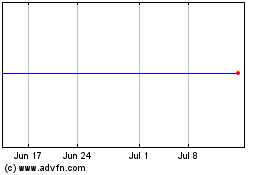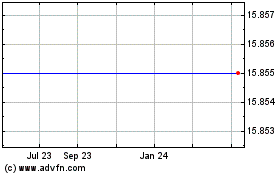By Mark Maremont
Mylan NV on Monday clarified the profit it said it made from its
lifesaving EpiPen drug, days after House members badgered the
company's chief executive to justify the device's steep price
increases.
Testifying before a congressional committee last week, CEO
Heather Bresch said Mylan's profit was $100 for a two-pack of the
injectors, despite a $608 list price. Her claim was met with
skepticism.
In response to questions from The Wall Street Journal, Mylan
said Monday that the profit figure presented by Ms. Bresch included
taxes, which the company didn't clearly convey to Congress. The
company substantially reduced its calculation of EpiPen profits by
applying the statutory U.S. corporate tax rate of 37.5% -- five
times Mylan's overall tax rate last year.
Without the tax-related reduction, Mylan's profits on the EpiPen
two-pack were about 60% higher than the figure given to Congress,
or $166, it said in a new regulatory filing to the Securities and
Exchange Commission Monday. The company said it expects to sell
about 4 million EpiPen two-packs in the U.S. this year.
Mylan said it now has provided the House Government Oversight
Committee slightly changed and more detailed figures on its EpiPen
profits, clarifying that the profit estimate was after taxes.
Mylan's explanation left some analysts scratching their
heads.
The 37.5% tax rate Mylan applied to EpiPen "has nothing to do
with reality," said Ryan Baum, an analyst with SSR Health LLC, a
health-care investment-research firm in Stamford, Conn.
Mylan had a 7.4% overall tax rate last year, he said, and a
negative effective tax rate in the U.S. due to a negative provision
for deferred taxes.
"That implies this notional [$100] profit figure also has
nothing to do with reality," Mr. Baum said.
In a statement, the company called the inclusion of a statutory
tax rate for the product -- in this case the U.S. corporate rate --
"standard" in single-product profit analysis. It also said it
didn't include corporate expenses, which would have further reduced
EpiPen's profitability, and called its calculations "appropriate
and conservative."
Ronny Gal, an analyst at Sanford C. Bernstein, said Mylan "in a
way" is correct to apply a statutory U.S. tax rate. "If EpiPen was
its own company, it would be taxed at 37.5%. It's just that it's
being taxed at a much lower rate" because of corporate
tax-reduction strategies.
In its filing Monday, Mylan said its after-tax calculation
wasn't done according to generally-accepted accounting principles
and the estimated tax impact on EpiPen profits "was not directly
derived from Mylan's reported results."
Rep. Elijah Cummings (D., Md.), the ranking Democrat on the
House Oversight committee, said in a statement Monday: "We didn't
believe Mylan's numbers last week during their CEO's testimony, and
we don't believe them this week either." He said the committee is
awaiting more documents to show what the actual profits have
been.
Mylan, which moved to the Netherlands last year for tax purposes
but is managed from Canonsburg, Pa., for weeks has been under fire
over repeated price increases on EpiPen. The penlike injector
delivers an emergency shot of epinephrine to counter severe
allergic reactions.
Mylan acquired rights to EpiPen in 2007, and has raised list
prices by 550% since then to the recent $608 level, according to
Truven Health Analytics.
During the hearing, Ms. Bresch said Mylan has responded to
criticism, in part, by introducing an identical generic version,
priced at $300 for a two-pack.
Ms. Bresch came to the hearing with a poster that showed how
various costs along the way resulted in a $100 profit per two-pack.
A major factor, the poster said, were "direct EpiPen related" costs
that Mylan pegged at $105 per two-pack.
The poster didn't say anything about tax costs, which it turns
out made up the majority of the $105. Mylan's chief executive
similarly didn't mention the tax calculation in her testimony, even
when Rep. Jason Chaffetz (R., Utah), the committee chairman, zeroed
in on the $105 direct-cost figure and asked "what is in that
number?"
Ms. Bresch cited sales, marketing and disease-awareness
costs.
The $100 profit figure, or $50 per pen, was greeted with
incredulity by committee members. Rep. Stephen Lynch (D., Mass.)
said "the numbers don't work, based on the documents you've given
us."
Rep. Buddy Carter (R., Ga.), a pharmacist, called Ms. Bresch's
explanation of EpiPen's pricing a "shell game." He reminded Ms.
Bresch she was under oath and asked: "Is that the truth, $50 per
pen?"
"Yes," Ms. Bresch replied. "Our profit is approximately $50 per
pen."
Without the tax reduction, the company's profit is $83 per pen,
the filing shows.
Write to Mark Maremont at mark.maremont@wsj.com
(END) Dow Jones Newswires
September 26, 2016 19:55 ET (23:55 GMT)
Copyright (c) 2016 Dow Jones & Company, Inc.
Mylan NV (NASDAQ:MYL)
Historical Stock Chart
From Mar 2024 to Apr 2024

Mylan NV (NASDAQ:MYL)
Historical Stock Chart
From Apr 2023 to Apr 2024
